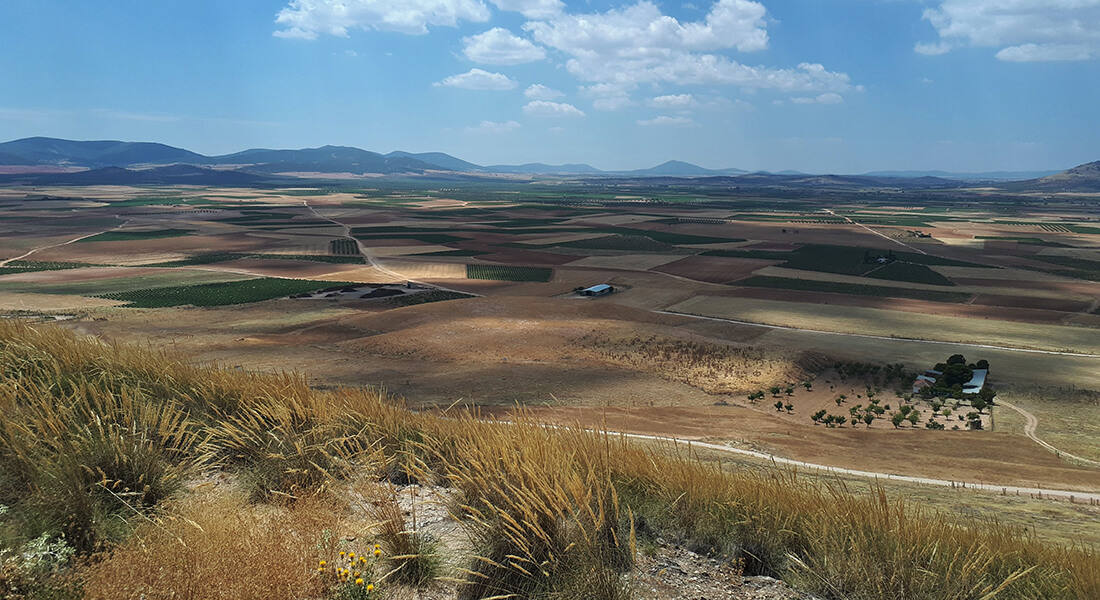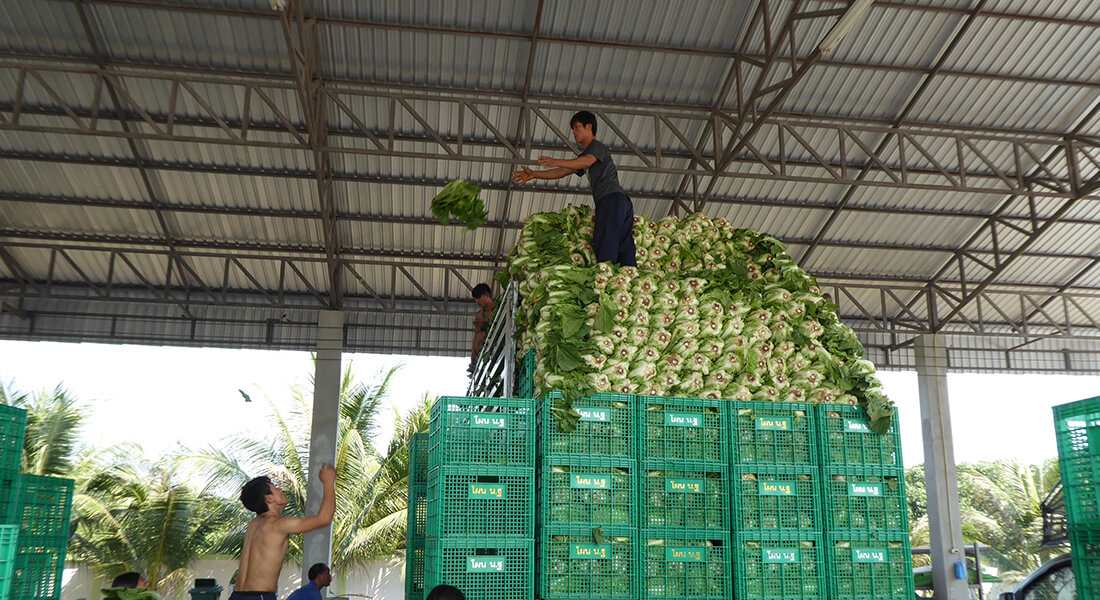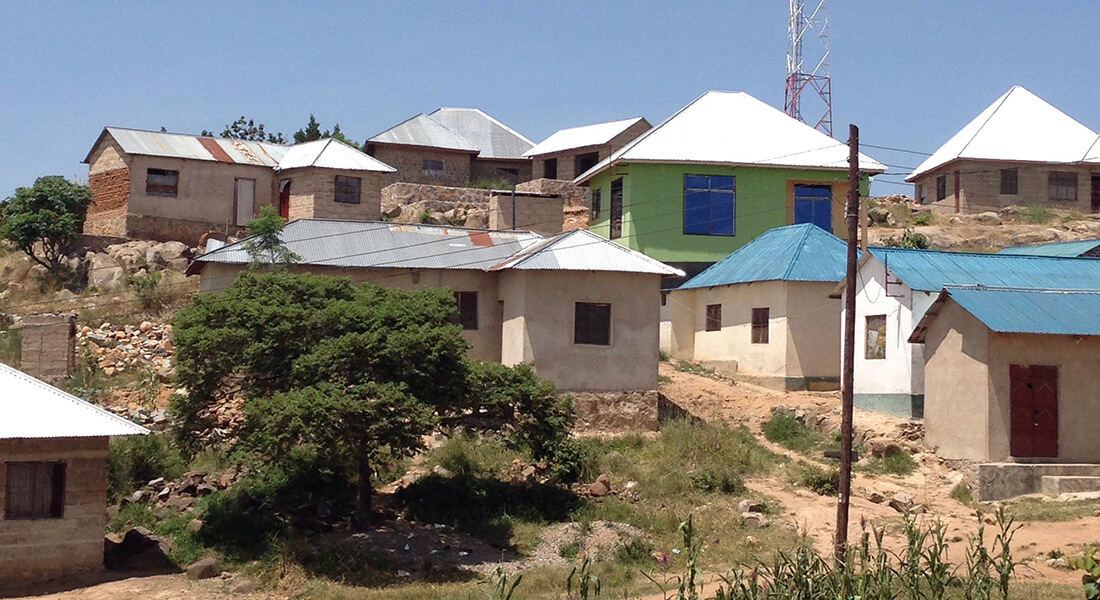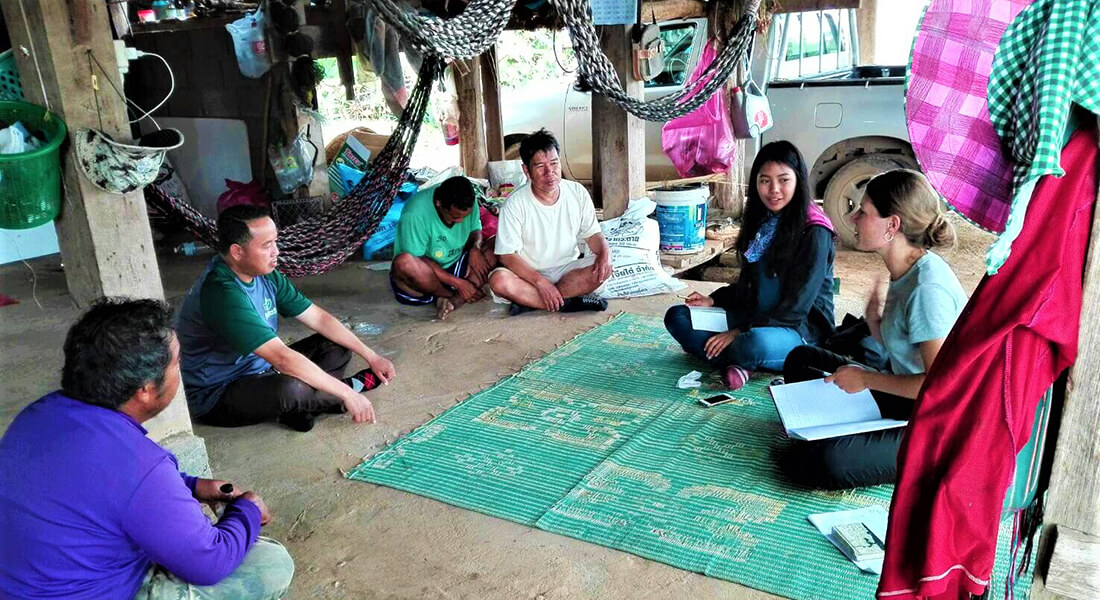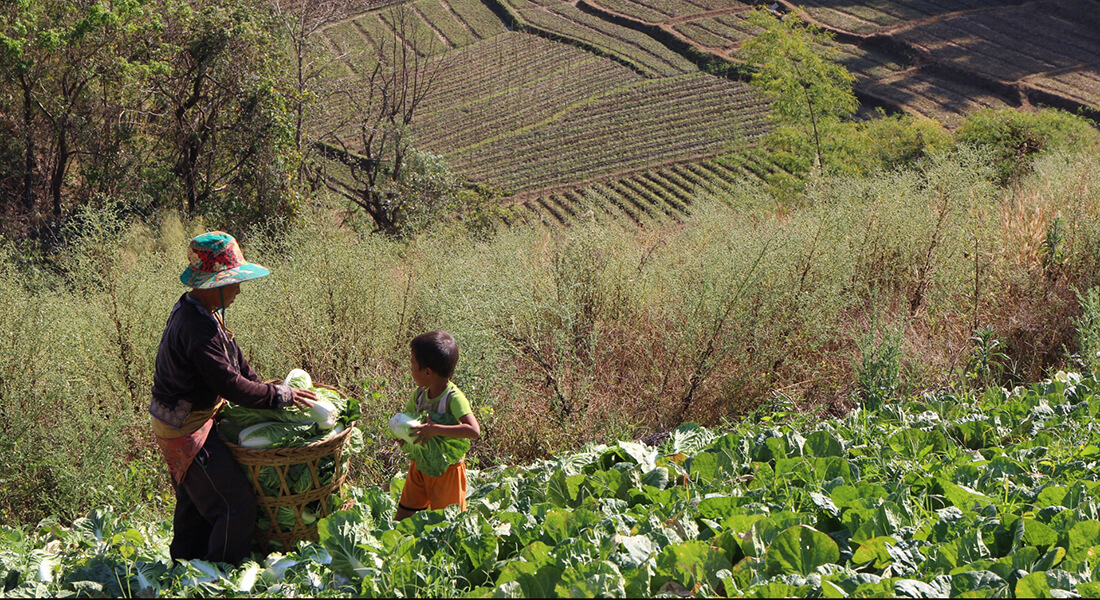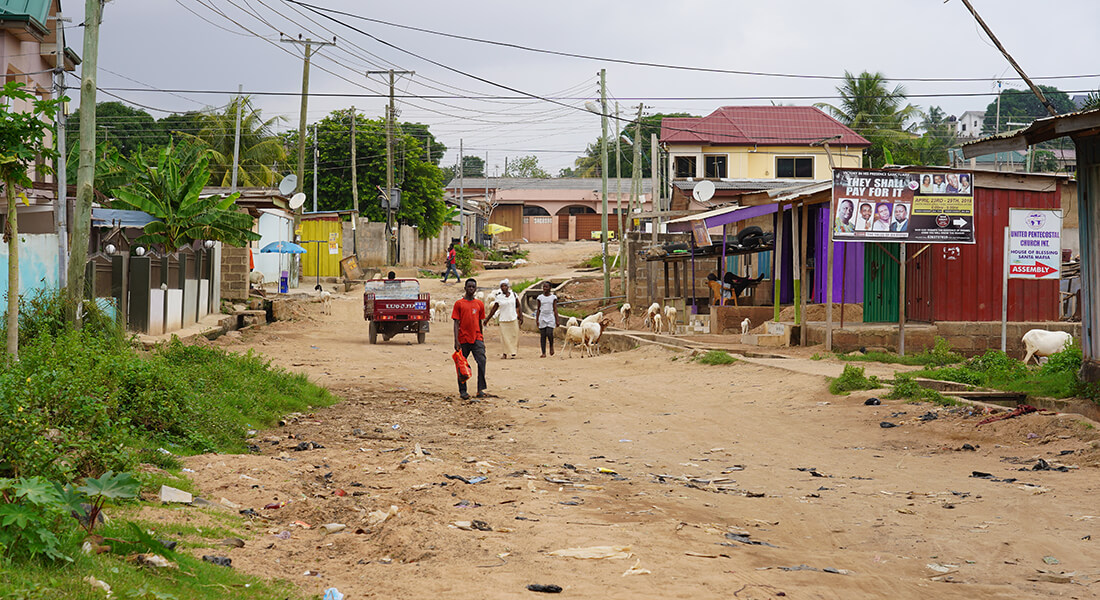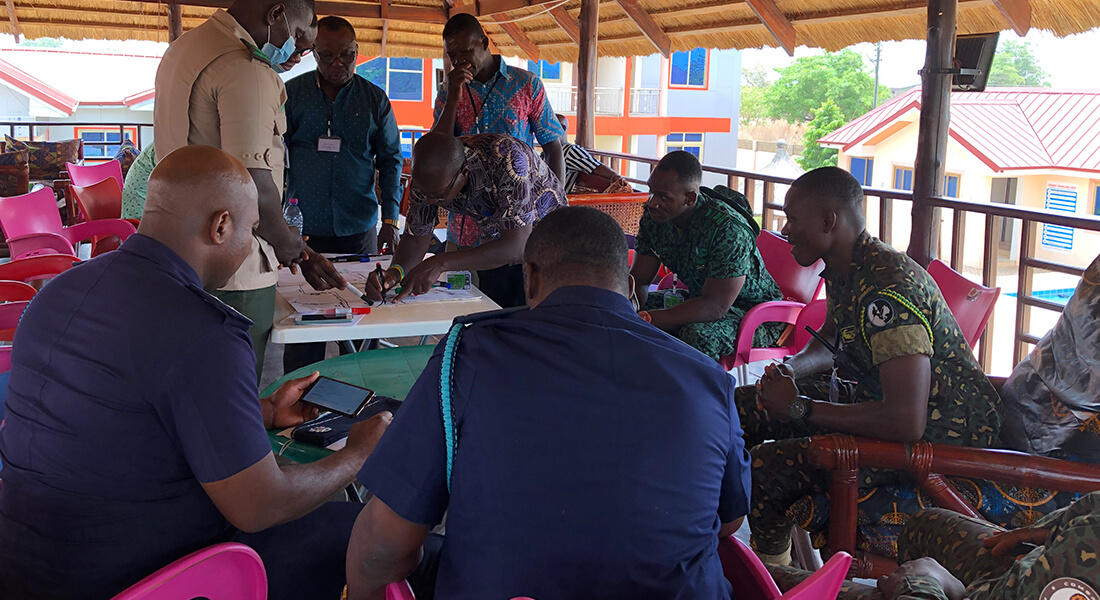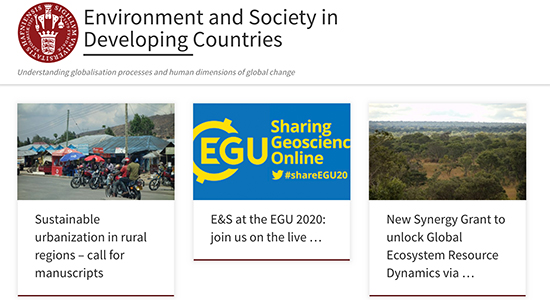 Marianne Nylandsted Larsen
Marianne Nylandsted Larsen
Associate Professor
mnl@ign.ku.dk
+45 35 32 41 67
Environment and Society in the Global South
The research group explores a broad portfolio of disciplinary entrance points, combined in various ways in our concrete research activities. The empirical research activities are concentrated in Africa (both East, West and South), South-East Asia and the Pacific, or deal with issues at the global scale. A variety of data sources are employed in our research, from interviews to Earth Observation.
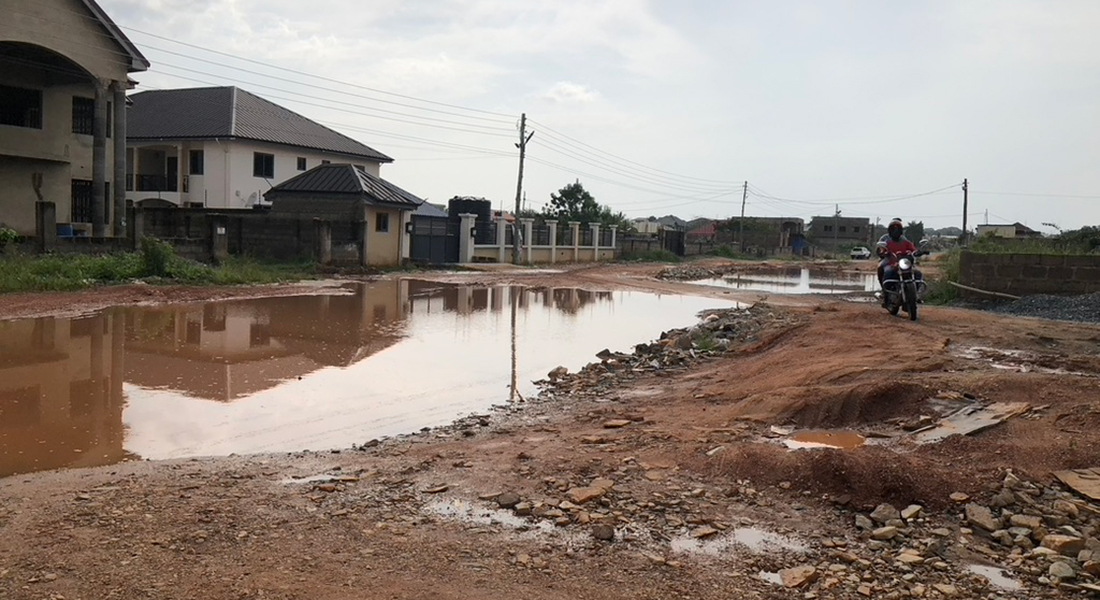
The research group explores a broad portfolio of disciplinary entrance points, combined in various ways in our concrete research activities. These build on three key research areas:
How people manage and use land is central to addressing major sustainability challenges. This includes climate change, food and nutrition security, biodiversity conservation, sustainable energy, and poverty alleviation. We examine how and where land-cover and land use changes occur, the factors driving changes in land systems, the outcomes of land system changes, and how land systems can be governed to help achieve various sustainability goals (e.g., nature conservation, equity and justice, poverty alleviation, food security). Examples of research and teaching areas include: land acquisitions and their effects on local livelihoods; rural-urban transitions; transformations of farming systems; outcomes of sustainability commitments; forest dynamics and the outcomes for local people’s livelihoods and food and nutrition security; land use and climate change interactions.
Urbanization and rural transformation unfold in the interaction between globalization processes and local development dynamics. Within this global-local nexus, we examine the drivers, dynamics and outcomes of societal transformation processes in rural and urban areas – and how rural and urban spaces can be governed for sustainable and inclusive development. Examples of research and teaching areas include the significance of rural-urban linkages for small town development; the interconnections between world market dynamics and rural livelihood changes; the impact of global agro-industrial value chains on regional development; the interactions of human mobility, migration, urbanization and urban spatial transformations.
Earth Observation of terrestrial ecosystems and land use with a focus on remote sensing of land functions and properties from local to global scale - and their responses to environmental, socio-economic and climatic changes. Remote sensing applications are anchored in research activities within human and physical geography, and often involves both image analysis and fieldwork. Examples of research and teaching areas include land surface characterization and modeling of spatial and temporal processes such as: monitoring vegetation health and composition; assessing land degradation and ecosystem resilience under climate change; studying land use/land cover change and associated drivers including deforestation/afforestation, urbanization and change in land use intensity.
The empirical research activities are concentrated in Africa (both East, West and South), South-East Asia and the Pacific, or deal with issues at the global scale. All scales from the household to continental, are considered. Great importance is attached to the mutual influence of processes at different scales, and a variety of data sources from interviews to Earth Observation are employed.
The research group continuously emphasizes to capitalize the interdisciplinary potential which lies in developing research approaches that cut across the key research areas described above.
Ongoing Research Projects
The research group is engaged in projects that are funded through national and international grants. Most of the projects are carried out in cooperation with other research institutions in Denmark, Europe, and the Global South.
The list is organized chronologically, with the most recent projects first:
-
Global Wetland Center, Novo Nordisk Fonden (Challenge program), 2024-2029.
- ALPMEMA - Alpine Mountain Hay Meadows Management: Best practices to maintain their Favorable Conservation Status against underuse under different property right regimes inside and outside protected areas. Biodiversa+ grant 2023-2026.
- The role of rural-urban linkages for enhanced Climate Resilience in rural Tanzania (RUL4CLI). Danida grant 2022-2027
- CLISA - Unravelling climate change impacts on savanna vegetation ecosystems. The Independent Research Fund Denmark (DFF; FNU), 2022-2026
- Risk-assessment of Vector-borne Diseases Based on Deep Learning and Remote Sensing. Novo Nordisk Foundation (NNF), 2022-2026
- Draindetect - Mapping drained carbon-rich wetlands. Geocenter fund, 2022-2025.
- FairFrontiers - Fair for whom? Power, politics and precarity in transformations of tropical forest-agriculture frontiers. Grant from Research Institute for Humanity and Nature (RIHN), Kyoto, Japan, 2021-2026.
- DRYTIP - Drought-induced tipping points in ecosystem functioning: Coupled insights from Earth Observation, Dynamic Vegetation Model and Field Ecology. Villum Young Investigator, 2021-2026
- RurbanClimate - Climate Resilience Across the Rural-Urban Continuum. Research grant from the Ministry of Foreign Affairs, 2021-2025
- AridLand – The response and resistance of global tropical drylands to increasing aridity. ESA CCI Research Fellowship, 2021-2023
- PerformLCA – High performance land change assessment through coupling of AI, high performance computing and Earth Observation. KU Data+ grant, 2021-2024.
- C-TREES - Tracking Carbon Sequestration at Tree Level. EU EUROSTARS, 2021-2023
- DeReEco - Combining remote sensing and artificial intelligence to improve current understanding of global change impacts on terrestrial ecosystems. Villum Synergy Grant, 2020-2025
- TOFDRY - Trees outside forests in global drylands. ERC starting grant 2020-2025
- Reinterpreting how forests support people's dietary quality in low-income countries. ERC starting grant, 2020-2025
- Mapping, characterizing and analyzing individual trees and shrubs outside forests in African drylands.DFF Sapere Aude grant, 2020–2024
- TRACE - Plastics from source to sink: Exploring transport pathways and fate of plastic waste in coastal waters. Geocenter Denmark, 2020-2023
- CaSSECS – Carbon Sequestration and greenhouse gas emissions in (agro) Sylvopastoral Ecosystems in the Sahelian CILSS States. EU, 2020-2023
- BSU 3 - Building Stronger Universities.Program with Sokoine University of Agriculture (SUA), Tanzania. Danida, 2017-2023
Recently completed Research Projects
-
- LEAP4FNSSA - Long-term Europe-Africa Research and Innovation Partnership for Food and Nutrition Security and Sustainable Agriculture. EU Commission (CSA), 2018-2022
- Beyond the 'Supermarket Revolution Myopia'- Traditional Markets and Sustainable Upgrading opportunities in Domestic Food Value Chains. Det Frie Forskningsråd, Samfund og Erhverv, 2017-2022
- AIDA, Agricultural Investors as Development Actors? Danish Institute for International Studies (DIIS) and IGN in collaboration with Makerere University, Uganda and Sokoine University of Agriculture, Tanzania. Danida Consultative Research Committee for Development Research (FFU), 2016-2022.
- Effects of Deforestation and Reforestation on food security and nutrition. Independent Research Fund Denmark (DFF), 2021-2022
- COUPLED - Operationalising telecouplings for solving sustainability challenges related to land use, Marie Skłodowska-Curie Action - Innovative Training Network (ITN), 2018-2022
- Inspire4Nature -International training at the Science-Policy Interface for Researchers in Europe, for Nature, Marie Skłodowska-Curie Action - Innovative Training Network (ITN), 2018-2022
- Rural-Urban TransformationGovernance, Mobility and Economic Dynamics, in Emerging Urban Centres for Poverty Reduction, in collaboration with Sokoine Agricultural University (SUA) Tanzania, 2015-2022
- Sustainable Value-Chains: Aquaponics in Colombia.Danida Consultative Research Committee for Development Research (FFU), 2018-2021.
- SEBEI - Socio-economic Benefits of Ecological Infrastructure.Danida Consultative Research Committee for Development Research (FFU), 2018-2021
- UNAS – Exploitation of Natural Resources in Southern Greenland, Geocenter Denmark, 2018-2021
- U-TURN, Understanding Turning Points in Dryland Ecosystem Functioning. BELSPO Stereo-III programme, 2017-2021
- Organic Cotton for Employment, Danida-FFU, 2015–2021
- POLICOFA II:Enhancing Productivity, Market Access and Incomes for Small Farming Business in Tanzania: Potentials and Limitations in Contract Farming, Danida-FFU, 2014-2021
- The Shadow of the future and the shadow of the past: studying the impact of climate change on human behavior. Philipps Universität Marburg, Germany, Robert Bosch Foundation, 2016-2020
- TGG-N:Transiting to green growth (Nepal), Danida-FFU, 2014-2019
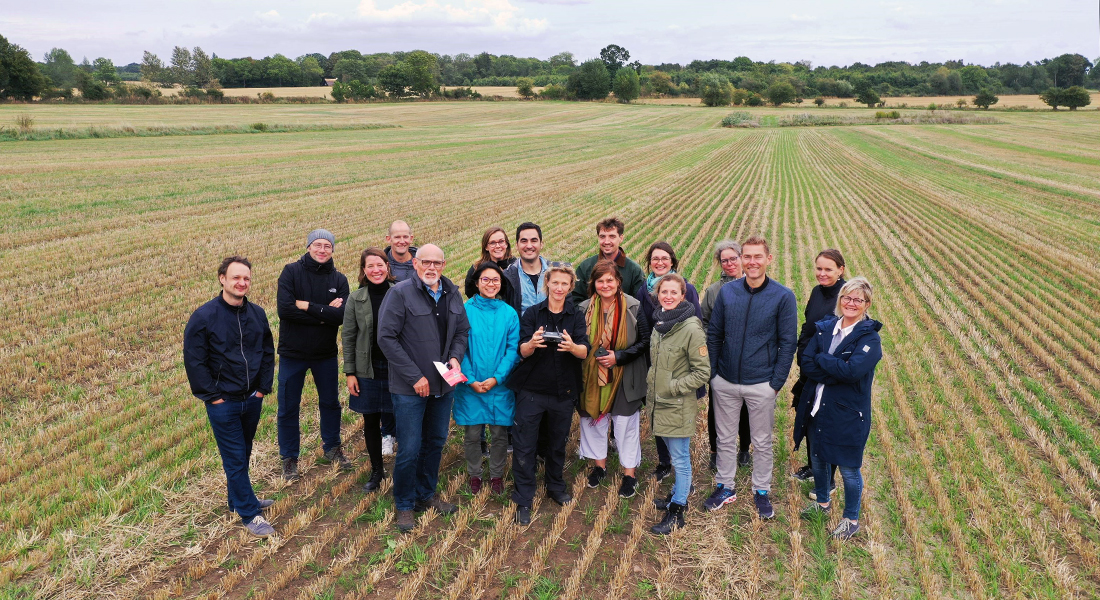
We supervise Master's thesis projects and we are pleased to include Master students in the work of the research group. Below is a list of previous Master's thesis titles which can be used for inspiration or for finding a potential supervisor.
Global Land project
Sustainable Land Use and Natural Resource Management (SLUSE)
Building Stronger Universities
International collaboration
The group attracts many young, international researchers and in connection with the FFU funded activities, the group receives visiting Ph.D. students and guest researchers from the Global South for education and collaborative work.
International collaboration is highly appreciated and ensured through a range of other mechanisms such as:
- Planned sabbaticals for permanent staff abroad
- Research capacity projects in the Global South
- Participation in international field experiments within earth observation and validation
- Participation in international research networks
- Advisory services to international organisations (e.g. OECD, WB, UNCTAD, UNFCCC)
- Participation in centres of excellence at UoC (Waterworlds, CAST)
- Participation in cross-Faculty thematic centres (Space Science, Earth Systems Science)
- Contributing to the platforms in ‘Building Stronger Universities' (Danish Universities)
- Leadership of Ernst Strungman Forum on ‘Global Land Use', etc.
Members of the Research Group
| First name | Surname | Title | Phone | |
|---|---|---|---|---|
| Search in First name | Search in Surname | Search in Title | Search in Phone | |
| Cecilie | Friis | Guest Researcher | +4535325843 | |
| Jytte | Agergaard | Professor | +4535322567 | |
| Ma. Eliza Jucar | Villarino | Enrolled PhD Student | ||
| Manja Hoppe | Andreasen | Associate Professor | +4535324182 | |
| Marianne Nylandsted | Larsen | Associate Professor | +4535324167 | |
| Mercy Obenewaah | Owusu | Enrolled PhD Student | ||
| Niels | Fold | Professor | +4535322561 | |
| Ole | Mertz | Professor | +4535322529 | |
| Sharon-Naomi | Alcaide Manthey | PhD Fellow | +4535323796 | |
| Sinne Borby | Ørtenblad | Postdoc | +4535332064 | |
| Torben | Birch-Thomsen | Associate Professor | +4535322570 | |
| Xaquín S. | Pérez-Sindín | Guest Researcher | +4535328227 |

